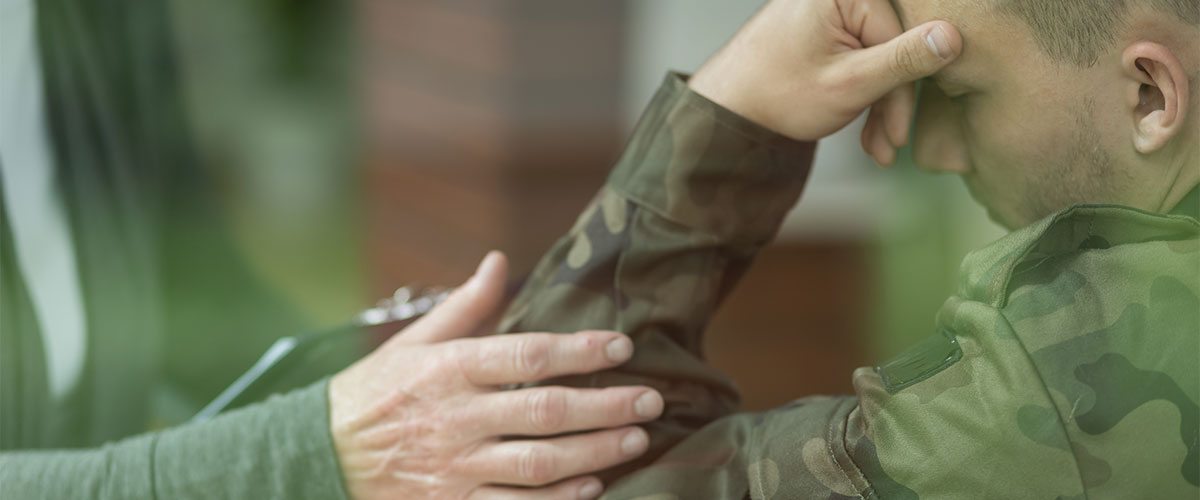[vc_row][vc_column][vc_column_text]
After considering petitions to expand Minnesota’s list of qualifying conditions for medical marijuana, the state’s department of health announced it would add post-traumatic stress disorder.
Minnesota state health officials announced last week that post-traumatic stress disorder (PTSD) would be added to the state’s list of qualifying conditions for medical marijuana. Starting August 2017, patients suffering from PTSD that have a doctor’s prescription will be eligible to sign up for a Minnesota medical cannabis card.
PTSD is a mental disorder caused by experiencing or witnessing a traumatic event. The mental health condition can last months or years, and causes recurring flashbacks, severe anxiety and stress, nightmares, and uncontrollable thoughts. According to the United States Department of Veterans Affairs, about 7 to 8 percent of the nationwide population will have PTSD at some point in their lives. Ten to 25 percent of soldiers returning from deployments in Iraq and Afghanistan experience PTSD, according to studies.
Petitioners had requested that the Minnesota Department of Health expand the medical marijuana list of qualifying conditions to include several conditions, including schizophrenia, phantom limb syndrome, diabetes, Ehlers Danlos Syndrome, insomnia, autism, arthritis, depression, and PTSD.
“The decision was made after careful deliberation of available evidence, consultation with experts in the field and public input,” Health Commissioner Dr. Ed Ehlinger said in a statement. “While the process of reviewing these potential additions was difficult due to the relative lack of published scientific evidence, PTSD presented the strongest case for potential benefits. PTSD also has few effective treatment alternatives available for some patients with the condition.”[/vc_column_text][/vc_column][/vc_row][vc_row][vc_column][vc_single_image image=”17365″ img_size=”1200×250″ onclick=”custom_link” img_link_target=”_blank” link=”https://www.medicalmarijuanainc.com/overview-of-medical-marijuana-research/”][/vc_column][/vc_row][vc_row][vc_column][vc_column_text]Research indicates that cannabis can help those with PTSD manage the re-experiencing, numbing, and hyperarousal symptoms associated with their disorder. Studies have shown cannabis use improves sleep quality and reduces nightmares in PTSD patients. Military veterans have been found to use cannabis to cope with PTSD-related stress and emotional difficulties after experiencing trauma in combat.
“As a veteran of the Minnesota National Guard with a background in emergency medicine, it pains me to see so many veterans struggle with PTSD,” Dr. Kyle Kingsley, CEO of Minnesota Medical Solutions, said in a statement. “Today’s decision offers new hope to an estimated 30,000 Minnesota veterans, as well as survivors of other traumatic and life-altering events, afflicted with PTSD.”
For veterans, however, getting legal access to medical cannabis continues to be complicated. The U.S. Department of Veterans Affairs does not permit its doctors to recommend medical marijuana, claiming insufficient research.
Minnesota, which legalized medical marijuana in 2014, joins 18 other states that have approved medical marijuana specifically for the treatment of PTSD. The state added intractable pain to the list of qualifying conditions last year, causing a significant influx of new patients to register with the program. As of now, about 3,500 patients are enrolled in the state’s patient registry.
“My role as health commissioner is to make sure we have a medical cannabis program that is as science-based as we can make it – that it is safe for the people who are using it,” Ehlinger said.
Ehlinger also announced that the state’s medical marijuana program would expand to allow topicals, including lotions, creams, patches, and ointments. As of now, patients are limited to medical cannabis in oil or pill form.
Learn more about Minnesota’s cannabis laws by visiting our education page.[/vc_column_text][/vc_column][/vc_row]






